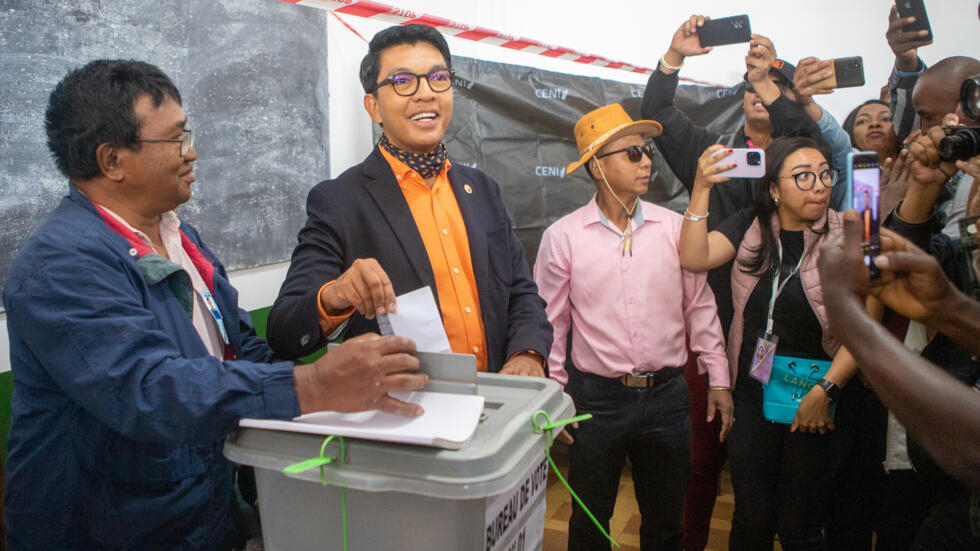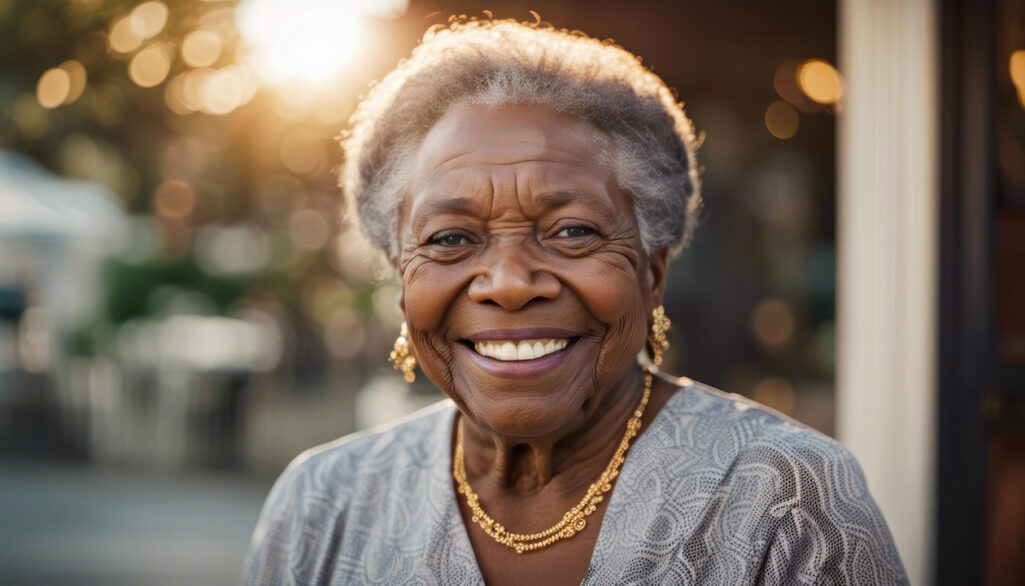Madagascar’s Presidential Election 2023: Navigating the Opposition Boycott

Madagascar recently buzzed with the activity of a major political event – the Madagascar’s Presidential Election. This wasn’t just any election; it was a pivotal moment, marking a chance for change in a country known for its political rollercoaster ride. The streets of Madagascar echoed with discussions and debates, as the nation prepared to choose its leader.
But here’s the twist – only some were on board. A group of opposition candidates threw a curveball into the mix. They called for a boycott, urging people to stay away from the polls. Why? They claimed the election was unfairly tilted in favor of the incumbent president. This call for a boycott added an extra layer of drama to Madagascar’s already complex political scene.
Background to the Political Crisis in Madagascar’s Presidential Election ?
Madagascar’s Rocky Political History
Let’s take a step back in time. Madagascar has yet to have the smoothest journey in politics. Since gaining independence in 1960, the country has gone through its fair share of ups and downs, including controversial elections and coups. This history sets the stage for the current election, where the stakes are high, and the past looms large.
President Andry Rajoelina’s Political Journey

Enter Andry Rajoelina, a key figure in Madagascar’s political saga. He first came into power in 2009, not through an election, but through a military-led takeover. Fast forward to 2018, and he wins the presidency in a runoff. Now, he’s eyeing a second term, but his path has yet to be without bumps. His tenure has been marked by economic struggles and questions about his commitment to democracy.
The Road to the Boycott
So, what led to the boycott? It’s a mix of longstanding grievances and fresh controversies. The opposition’s major beef is what they see as an “institutional coup” – a setup they believe unfairly favors Rajoelina. Adding fuel to the fire, reports surfaced about Rajoelina acquiring French citizenship, raising questions about his eligibility. The country’s highest court, however, cleared him to run. These events, coupled with a struggling economy and a crackdown on protests, set the stage for the opposition’s dramatic call to boycott Madagascar’s Presidential Election.
Election Day Dynamics of Madagascar’s Presidential Election ?
The Atmosphere on Election Day
Election day in Madagascar was a day of contrasts. In areas backing the current president, Andry Rajoelina, there were lines of people waiting to vote. But, in opposition strongholds, the streets were quieter, with many people staying home. This split scene showed just how divided opinions were.
Voter Turnout and Regional Responses
- Pro-Rajoelina Areas: Busy polling stations, a sign of strong support.
- Opposition Areas: Much lower turnout, reflecting the boycott’s impact.
- This varied response across regions highlighted the deep divisions in Madagascar’s political landscape.
What the People of Madagascar Said
- Francky Randriananantoandro (Student): He expressed concern, fearing that some factions wanted chaos.
- Jeanne Yvonne Razafindramanana (Unemployed): She believed the boycotting opposition should have participated, saying their absence caused disorder.
- Josiane Rasoamalala (Security Agent): She hoped the election would bring positive changes, like job opportunities and lower prices for essentials.
These diverse voices illustrate the mixed feelings among Madagascar’s citizens about the election’s impact on their future.
The Opposition’s Stance and Actions in Madagascar’s Presidential Election ?
Why the Opposition Called for a Boycott
The opposition had strong reasons for boycotting the election. They claimed it was rigged to favor President Rajoelina and labeled it an “institutional coup.” They were also irked by Rajoelina’s French citizenship, arguing it should disqualify him. These concerns, combined with the crackdown on protests, fueled their decision to step back from the polls.
Impact of the Boycott on Madagascar’s Democracy
The boycott raises big questions about democracy in Madagascar. It shows a deep divide in the political landscape and a lack of trust in the electoral process. This scenario could weaken the legitimacy of the election results and challenge the country’s democratic health.
Opposition Leaders and Supporters Speak Up
Opposition leaders and their supporters voiced their frustrations loud and clear. They felt sidelined and believed the election was unfair. This sentiment resonated with many citizens, reflecting a broader discontent with the current political climate. Their actions and words underscored a longing for a more inclusive and transparent political process in Madagascar.
ALSO READ: Israel-Hamas War: South Africa Takes A Decisive Stand
Views from Observers on Madagascar’s Presidential Election ?
International Observers’ Take on the Election Process
International observers had their eyes peeled during Madagascar’s election. While they haven’t released detailed reports yet, their role was crucial in assessing the fairness and transparency of the process. They looked at things like voter turnout, how well the voting was conducted, and if there were any irregularities.
Local Civil Society Groups Weigh In
Local groups played a key role in evaluating the election’s legitimacy. They focused on:
- How the boycott impacted voter participation.
- Whether the election truly reflected the people’s will.
- The overall atmosphere and conduct during the election day.
Their insights are key to understanding the true picture of Madagascar’s Presidential Election from a local perspective.
Challenges and Controversies in Madagascar’s Presidential Election ?
Rajoelina’s French Citizenship Controversy
President Rajoelina’s French citizenship became a hot topic. The opposition argued this should disqualify him from running. But, the country’s top court disagreed and allowed him to contest. This decision stirred up debates about eligibility and fairness in Madagascar’s politics.
Fairness and Transparency Concerns
Questions were raised about how fair and transparent the election was. The opposition’s boycott was rooted in their belief that the election favored Rajoelina. These doubts cast a shadow over the legitimacy of the election process.
The Shadow of Pre-Election Violence and Protests
Violence and protests before the election added to the tense atmosphere. Security forces cracked down on these protests, raising concerns about freedom of expression and the government’s approach to dissent. This unrest highlighted the deep-rooted challenges facing Madagascar’s political landscape.
ALSO READ: Gabe Amo: Son of Ghana and Liberia Immigrants Makes US Congressional History
Future Implications of Madagascar’s Presidential Election ?
What This Election Means for Madagascar’s Politics
The election’s outcome could set the tone for the country’s political future. A win for the current president might mean more of the same policies, while a new leader could bring change. The way this election is perceived – fair or not – will also influence future political engagements and public trust in the system.
Impact on International Relations
Madagascar’s standing in the global community could be affected. How the election is viewed internationally might influence foreign investments, aid, and diplomatic relations.
Looking Ahead: Stability and Development
The big question is: Can Madagascar achieve political stability and economic growth post-election? The answer depends on the new government’s approach to addressing economic challenges, respecting democratic norms, and fostering inclusive politics. This election could be a stepping stone towards a more stable and prosperous Madagascar. ??
Conclusion: Reflecting on Madagascar’s Presidential Election ?
Key Points Recap
- Election Scenario: Madagascar witnessed a tense presidential election, marked by a significant boycott from the opposition.
- Political History: The country’s history of political instability set the backdrop for this election.
- Election Day: Differing voter turnouts and opinions highlighted the nation’s divided political landscape.
- Opposition’s Boycott: Their stance raised questions about the election’s fairness and democratic health.
- Observers’ Views: Both international and local observers kept a close watch, offering insights into the election’s legitimacy.
- Challenges: Controversies like Rajoelina’s citizenship and pre-election unrest added complexity.
ALSO READ: Confronting Colonial Ghosts: The Maji Maji Rebellion and Germany’s Search for Redemption
The Election’s Significance
This election wasn’t just about choosing a president. It was a test of Madagascar’s democratic resilience. The outcome and how it’s handled could pave the way for a more stable and prosperous future, or it could further deepen the divides. It’s a pivotal moment for Madagascar, with the potential to shape its political trajectory for years to come. ???







Responses